I NTERRUPTING S ILENCE
Also by Walter Brueggemann
from Westminster John Knox Press
Abiding Astonishment: Psalms, Modernity, and the Making of History
(Literary Currents in Biblical Interpretation series)
Cadences of Hope: Preaching among Exiles
Celebrating Abundance: Devotions for Advent
Chosen? Reading the Bible amid the Israeli-Palestinian Conflict
The Collected Sermons of Walter Brueggemann, Volumes 1 and 2
First and Second Samuel (Interpretation series)
From Whom No Secrets Are Hid: Introducing the Psalms
Genesis (Interpretation series)
Gift and Task: A Year of Daily Readings and Reflections
Great Prayers of the Old Testament
Hope for the World: Mission in a Global Context
Hope within History
An Introduction to the Old Testament: The Canon and Christian Imagination, Second Edition (with Tod A. Linafelt)
Isaiah 139 (Westminster Bible Companion series)
Isaiah 4066 (Westminster Bible Companion series)
Journey to the Common Good
Living Countertestimony: Conversations with Walter Brueggemann (with Carolyn J. Sharp)
Mandate to Difference: An Invitation to the Contemporary Church
Many Voices, One God: Being Faithful in a Pluralistic World (with George W. Stroup)
Power, Providence, and Personality: Biblical Insight into Life and Ministry
Reverberations of Faith: A Theological Handbook of Old Testament Themes
Sabbath as Resistance: New Edition with Study Guide
Struggling with Scripture (with Brian K. Blount and William C. Placher)
Texts for Preaching: A Lectionary Commentary (with Charles B. Cousar, Beverly Roberts Gaventa, J. Clinton McCann, and James D. Newsome)
Truth Speaks to Power: The Countercultural Nature of Scripture
Using Gods Resources Wisely: Isaiah and Urban Possibility
The Vitality of Old Testament Traditions, Second Edition (with Hans Walter Wolff)
A Way Other than Our Own: Devotions for Lent (compiled by Richard Floyd)
INTERRUPTING SILENCE
Gods Command
to Speak Out
W ALTER B RUEGGEMANN

2018 Walter Brueggemann
First edition
Published by Westminster John Knox Press
Louisville, Kentucky
18 19 20 21 22 23 24 25 26 2710 9 8 7 6 5 4 3 2 1
All rights reserved. No part of this book may be reproduced or transmitted in any form or by any means, electronic or mechanical, including photocopying, recording, or by any information storage or retrieval system, without permission in writing from the publisher. For information, address Westminster John Knox Press, 100 Witherspoon Street, Louisville, Kentucky 40202-1396. Or contact us online at www.wjkbooks.com.
Scripture quotations from the New Revised Standard Version of the Bible are copyright 1989 by the Division of Christian Education of the National Council of the Churches of Christ in the U.S.A. and are used by permission.
Book design by Erika Lundbom-Krift
Cover design by Mark Abrams
Library of Congress Cataloging-in-Publication Data
Names: Brueggemann, Walter, author.
Title: Interrupting silence : Gods command to speak out / Walter Brueggemann.
Description: Louisville, KY : Westminster John Knox Press, 2017. | Identifiers: LCCN 2017047327 (print) | LCCN 2017048884 (ebook) | ISBN 9781611648508 (ebk.) | ISBN 9780664263591 (pbk. : alk. paper)
Subjects: LCSH: SilenceReligious aspectsChristianity. | SilenceReligious aspectsChristianityBiblical teaching.
Classification: LCC BV5068.S55 (ebook) | LCC BV5068.S55 B78 2017 (print) | DDC 248.4dc23
LC record available at https://lccn.loc.gov/2017047327
 The paper used in this publication meets the minimum requirements of the American National Standard for Information SciencesPermanence of Paper for Printed Library Materials, ANSI Z39.48-1992.
The paper used in this publication meets the minimum requirements of the American National Standard for Information SciencesPermanence of Paper for Printed Library Materials, ANSI Z39.48-1992.
Most Westminster John Knox Press books are available at special quantity discounts when purchased in bulk by corporations, organizations, and special-interest groups. For more information, please e-mail .
For
Rolf Jacobson
Carolyn Sharp
Brent Strawn
Christine Yoder
I am pleased to dedicate this book to my friends Rolf Jacobson, Carolyn Sharp, Brent Strawn, and Christine Yoder. They are among the most important voices in a younger generation of Old Testament scholars. They have been generous in giving me access to their work, their methods, and their thinking that runs well beyond my old-fashioned ways. I am grateful for their work and their friendship.
CONTENTS
Excerpt from Gift and Task,
by Walter Brueggemann |
I AM GLAD TO THANK THE USUAL SUSPECTS FOR BRINGING this little book to completion. David Maxwell first suggested it to me and did heavy lifting to bring it to fruition. The good folk at Westminster John Knox, notably Julie Tonini, have done their usual careful, patient work, and I am grateful.
Beyond these immediacies, I am grateful to the good company of companions who have not only taught me the urgency of breaking the silence but have stood by me through the process of breaking my own silence. That includes a host of teachers, colleagues, and pastoral companions, among them most especially Gerald Jenkins, who saw beyond my silences. Of course our silence breaking is deeply rooted in the biblical tradition of coming to speech, most notably the Hebrew slaves who refused the silence of Pharaoh. Those silence breakers, however, were only an echo of the God who broke the silence of chaos with a command to the light.
We now live in a barbaric world where the stones cry out against the violence that spirals from the top down. Our work is to join their refusal of silence and their brave insistence on voice.
S ILENCE IS A COMPLEX MATTER . I T CAN REFER TO AWE before unutterable holiness, but it can also refer to coercion where some voices are silenced in the interest of control by the dominant voices. It is that latter silence that is the primary focus of the studies that follow.
On April 15, 1967, at Riverside Church in New York City, Martin Luther King Jr. gave an address to Clergy and Laymen Concerned about Vietnam titled Beyond Vietnam: A Time to Break the Silence. In that address, King not only spoke vigorously against the U.S. war policy in Vietnam, but he also linked opposition to the war to the crisis of race that he had long addressed. I remember that address; like many others at the time, I feared that in linking the war to the racial crisis King was detracting focus and energy away from the race crisis. But, of course, I, along with many others, was wrong. King understood that the war and race belonged to a cluster of issues, all of which flow together in a collusive silence in which public opinion had silently accepted top-down authority. Kings breaking of the silence was a freighted moment in mobilizing sustainable opposition to the war in a challenge to settled authority.
Kings capacity to break the silence that supported the war is representative of many movements that break the silence of long-protected practices of domination and exploitation. Most recently a number of church bodies have begun, albeit belatedly, to speak out against the churchs pernicious, still-in-effect Doctrine of Discovery that long ago (and until now) cedes the new world to the old European colonizing powers, a ceding that currently feeds white nationalist sentiment in the United States. Such belated protests that work toward abrogation of that long-standing doctrine have come with an awareness that we must not be silent. In fact, many groups are now insisting that we must not be silent any longer, such as many liberation movements, among them feminism and womanism in many varieties, queer theology, Black Lives Matter, and voices of and for the disabled. In the Bible, perhaps the most vigorous character in such silence breaking is the importunate (nagging!) widow in Jesus parable in Luke 18:18. All of these silence breakers have come to see that silence is a strategy for the maintenance of the status quo, with its unbearable distribution of power and wealth. Silence breakers characteristically insist that the old patterns of power must be disrupted and reconfigured. Thus the widow asked for and insisted on justice.
Next page

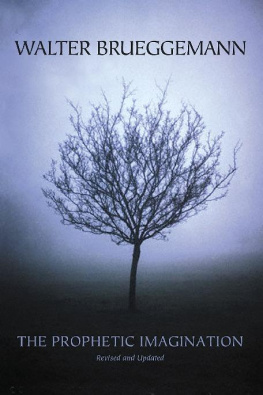
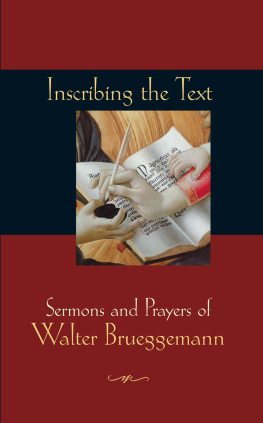
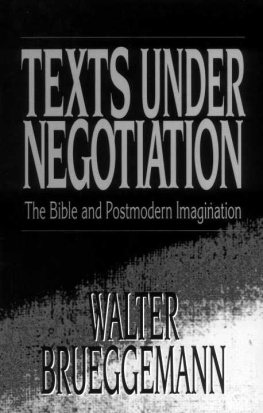
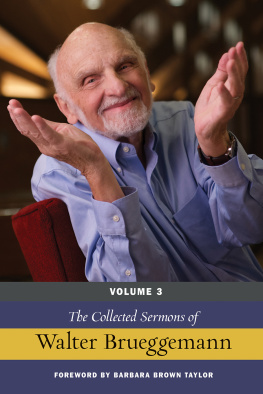
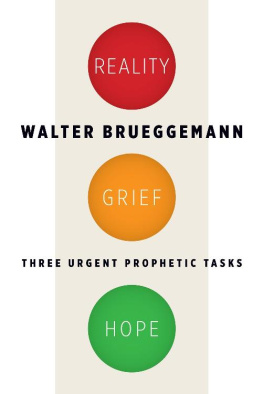
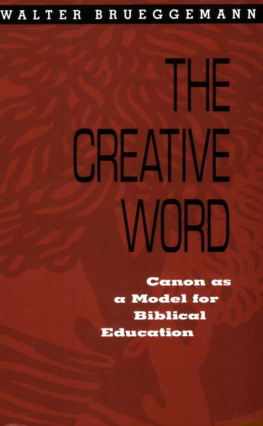
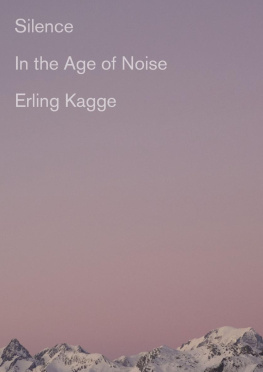
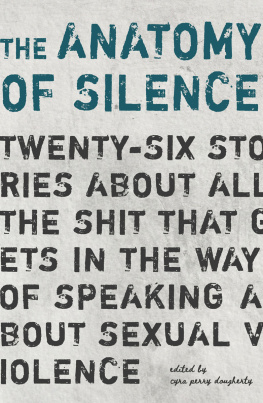
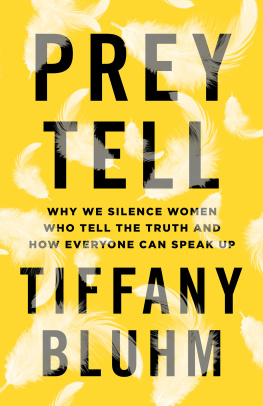
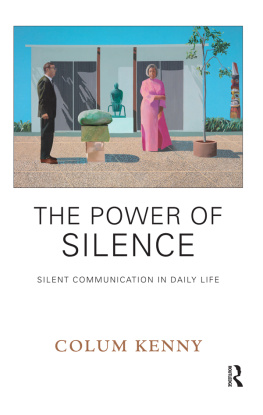
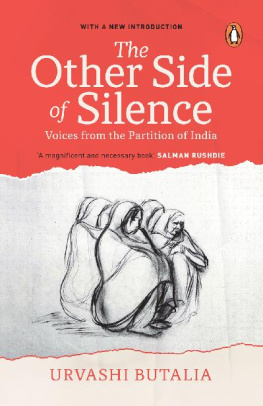


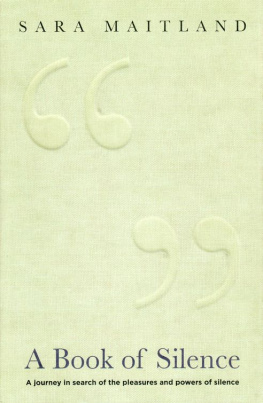
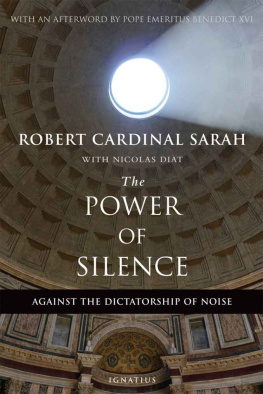
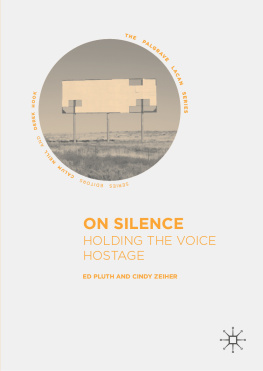
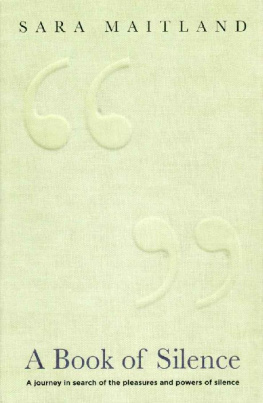


 The paper used in this publication meets the minimum requirements of the American National Standard for Information SciencesPermanence of Paper for Printed Library Materials, ANSI Z39.48-1992.
The paper used in this publication meets the minimum requirements of the American National Standard for Information SciencesPermanence of Paper for Printed Library Materials, ANSI Z39.48-1992.